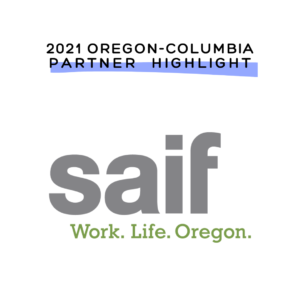How to help construction employees be resilient
Employees who feel safe and are mentally well also perform better on the job and are less likely to get physically injured.
Grief. Disappointment. Exhaustion. These are just a few of the things your employees may be feeling these days.
Construction companies have an opportunity to support employees as they cope and build resilience.
Why is it important to have resilient employees? While the pandemic, worker shortage, and economy are today’s issues, there will always be hardship. Resilient employees will be able to adjust and cope with whatever they encounter.
Employees who feel safe and are mentally well also perform better on the job and are less likely to get physically injured. In construction, many lives are lost to suicide and altered by depression and substance abuse. There is a heavy human cost, and a loss of economic strength as companies wrestle with absenteeism, presenteeism, and loss of productivity. Enhancing worker’s resiliency can be one way employers can contribute to suicide prevention.
It’s important to realize that being resilient doesn’t mean we don’t ever feel overwhelmed or experience struggle. It simply means we have the internal resources and abilities to adapt to stress and adversity.
Psychological safety
Building employee resilience starts with a psychologically safe workplace. To gauge whether your workplace promotes psychological safety, ask yourself these questions:
- Do employees feel they belong?
- Are employees able to learn?
- Are employees encouraged to share ideas?
- Are employees encouraged to question the way things are done?
Workers who feel supported and psychologically safe are more productive and have lower risk of developing health issues, whether that be physical, emotional, or mental.
Some best practices for construction
As an employer, you can make a difference. Here are some tips from Mandi Kime, safety services director for AGC of Washington, on best practices for the construction industry
- Talk about it. Help erase the stigma around mental health by bringing it up in meetings, toolbox talks, or companywide communications. You can also put up posters and flyers related to mental well-being.
- Foster a culture of wellbeing. Ideas for building this type of culture could be fostering open communication between the worker and their supervisor to cultivate trust and honesty and setting clear expectations.
- Develop your employee assistance program. Does your health plan and employee assistance program have accessible and affordable options for employees? Do they know how and are they encouraged to access those benefits?
- Offer mental health training. Mental Health First Aid; Question, Persuade, Refer; and Living Works are examples.
- Encourage employees to build their own resilience. According to the Bounce Back Project, there are five pillars of resilience: self-awareness, mindfulness, relationships, purpose, and self-care. How can you encourage employees to take advantage of these areas?
Multiple surveys during the past 16 months have shown the impact of the pandemic and other world events on people’s mental health. They are more stressed, anxious, and have higher rates of depression than before the pandemic. We can have a powerful protective effect by implementing policies and practices that help build resilience by providing safe environments both physically and psychologically.
For more information on helping employees cope and build resilience, check out SAIF’s resource on employee resilience, or visit the mental well-being resources on saif.com.
Liz Hill is the Total Worker Health Adviser for SAIF Corporation. She has more than 25 years of experience in professional health and safety, including a short stint in international health work. Prior to working at SAIF, Liz worked in a variety of industries from oil and gas to higher education. Liz has a Bachelor of Science in industrial hygiene and a Master of Public Health. She has designation as a Certified Industrial Hygienist and a Certified Safety Professional. She is currently serving on the American Industrial Hygiene Association’s (AIHA) Total Worker Health Advisory Group, is a member of Oregon’s Construction Suicide Prevention Partnership, and is past chair of AIHA Safety Committee.
SAIF is Oregon’s not-for-profit workers’ compensation insurance company. For more than 100 years, we’ve been taking care of injured workers, helping people get back to work, and striving to make Oregon the safest and healthiest place to work. For more information, visit the About SAIF page on saif.com.
AGC would not be able to have the successful events and meetings without our generous partners! As a benefit of our yearly Partner Program, we spotlight some of our member partner companies. Thank you SAIF!
